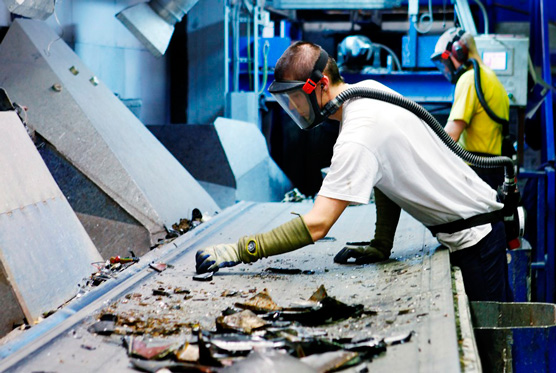Promoting sustainable circular economy generates change in politics

© Wilma Hurskainen.
For the past 20 years, SYKE has been promoting sustainable circular economy. Multiple peer-reviewed academic papers and policy briefs have resulted from the effort.
SYKE has looked into areas of research that have received little attention so far, such as the link between circular economy and biodiversity, land use issues and the environmental footprint of products.
Reaching out to decision-makers and citizens
SYKE has published a policy brief on managing chemicals and material cycles to cover the safety aspect in sustainable circular economy. SYKE was one of the organizers of the European Days for Sustainable Circular Economy event during the Finnish EU presidency, and several SYKE researchers had presentations there on various issues. SYKE participated in PATH2030, a series of workshops, talks and suggestions for political parties and the government. SYKE also educates the public by taking an active role in public discourse in the general media.
Guiding lawmakers and leaders
SYKE has influenced and contributed to new end-of-waste procedures and legislation. Thanks to the PATH2030 project, sustainable development was chosen one of the foundations for the Government Program of Prime Minister Sanna Marin’s Cabinet.
For more on the impacts:
- Korhonen, J., Honkasalo, A., & Seppälä, J. (2018). Circular economy: the concept and its limitations. Ecological economics, 143, 37-46.
- Manninen, K., Koskela, S., Antikainen, R., Bocken, N., Dahlbo, H., & Aminoff, A. (2018). Do circular economy business models capture intended environmental value propositions? Journal of Cleaner Production, 171, 413-422.
-
European Days for Sustainable Circular Economy, Sept 30th–Oct 1st , 2019 in Finlandia Hall, Helsinki
- About POLKU / PATH 2030 -project
- About Sanna Marin's Government Programs' proceedings: Strong support from Climate Policy Roundtable for recovery measures that mitigate climate emissions, 28th May 2020
-
A circular economy allows a significant reduction in the consumption of natural resources - SYKE Policy Brief
- Shifting from a linear economy to a circular economy - SYKE Policy Brief
-
Managing chemicals and material cycles - SYKE Policy Brief
-
Safe and sustainable circular economy - VN-TEAS Policy Brief
CIRCWASTE pilot projects came to the rescue of the National waste plan
The evaluation report of the National Waste Plan identified obstacles in the implementation of the plan by 2016. The implementation would clearly need more capacity building and education on novel methods and solutions. Broad cooperation within the waste sector was another important area to be developed..
SYKE designed CIRCWASTE, a Life IP project, to meet the national waste management challenges. Consisting of 19 pilot projects, it covers five municipalities, both rural and urban, and 24 percent of the population. In addition, 10 forerunner municipalities have committed themselves to a range of ambitious and concrete efforts to promote circular economy.
Collecting data and sharing best practices
At the start of CIRCWASTE, it became evident that data on waste and materials were non-existent or fragmented across a range of different actors and organizations. In addition to tackling these data challenges, the project improved communication between project partners and other stakeholders as well as the public at large. The forerunner municipalities cooperate and communicate actively with networks such as Hinku (Carbon neutral municipalities) and FISU (Finnish Sustainable Communities), improving the effectiveness of the implementation of of waste policies, plastics strategy, climate strategy and also improving the sustainability of consumption.
CIRCWASTE acts as an engine of circular economy and a central coordinating platform. CIRCWASTE has held 10 large seminars and webinars on various themes of Circular Economy with from forerunner municipalities and project partners, and from other collaborative projects and HINKU or FISU member municipalities.
Secondary raw materials tapped, not tossed
As a result of analytical and practical circular economy work, virgin resources are needed less because materials are recovered as secondary raw materials that were previously discarded in a landfill. There is proof that it is often economically feasible to add value to products made from traditionally low value materials. Also, smart waste management has proven the potential to save space and boost logistical systems.
For more on the impacts: